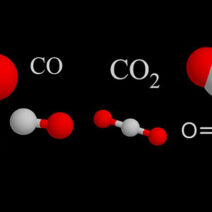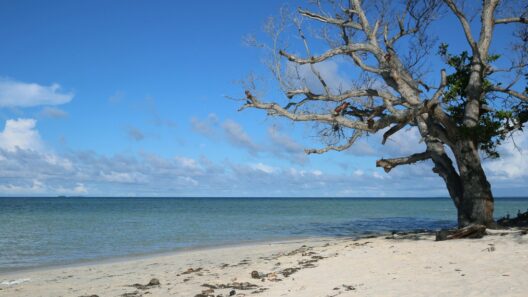Penguins, particularly the Adelie species, face formidable challenges as the climate crisis escalates. These enchanting creatures are emblematic of the Antarctic region, yet they are confronting profound existential threats stemming from global warming. Understanding the plight of Adelie penguins offers insight into broader environmental issues and underscores the urgent need for conservation efforts.
Adelie penguins (Pygoscelis adeliae) are a robust species native to the Antarctic coast, characterized by their distinctive black and white plumage and steadfast nature. These resilient birds have adapted to one of the harshest climates on Earth. However, as global temperatures rise, the icy habitat that sustains them is disappearing at an alarming rate. The rapid melting of sea ice is a direct consequence of climate change and has catastrophic implications for these penguins.
Adelie penguins depend heavily on ice for nesting and as a platform for foraging. They thrive in areas where sea ice remains stable during the breeding season, typically from late spring to early summer. As temperatures rise, the timings and availability of sea ice fluctuate, disrupting their reproductive cycle and diminishing the availability of krill, their primary food source. Declining krill populations, which rely on ice-algal blooms for sustenance, trigger cascading effects throughout the ecosystem.
The Antarctic ecosystem is intricate, with various species interacting symbiotically. The decline of krill due to diminishing sea ice has repercussions not only for Adelie penguins but for other marine life as well. The ramifications of this disruption threaten not just biological diversity but also the stability of marine food webs. Consequently, predators that depend on Adelie penguins, such as leopard seals and orcas, face food shortages, leading to further ecological imbalance.
Research regarding Adelie penguins’ status is both enlightening and troubling. Studies reveal that populations in certain regions are experiencing declines, while others have shown relative stability. These discrepancies can often be attributed to localized environmental conditions, including variations in sea surface temperature and availability of ice. Some populations are navigating the shifting ecosystem with marked resilience, adapting their foraging strategies or relocating to more suitable nesting sites. However, these adaptive measures cannot be relied upon indefinitely; as global warming intensifies, their options may rapidly diminish.
The breeding success of Adelie penguins also hangs in the balance. Increased temperatures can lead to the early breakup of sea ice, disrupting nesting sites and leaving eggs vulnerable to predation. In addition, extreme weather events, exacerbated by climate change, can cause population fluctuations, leaving chicks and parents alike at risk. The fragility of their breeding cycle underscores the need for consistent monitoring and research efforts to ensure informed conservation strategies are implemented.
Conservationists are now more than ever advocating for the protection of Adelie penguins and their habitat. Innovative strategies are being employed to mitigate the impacts of climate change and preserve their ecological niche. Establishing Marine Protected Areas (MPAs) is one such approach aimed at safeguarding critical feeding and breeding grounds. By limiting human activities in these areas, adjacent ecosystems can recover, providing Adelie penguins with a sustainable environment.
Moreover, public awareness campaigns play a pivotal role in addressing the challenges posed by global warming. Educating the public about the plight of the Adelie penguin can galvanize support for conservation efforts. Citizen science projects enable individuals to participate actively in data collection, fostering a greater understanding of the bird’s ecology and the effects of climate change. This direct engagement can foster a sense of stewardship that may inspire collective action.
The international community is vital for addressing the climate crisis that afflicts the polar regions. Agreements such as the Paris Accord reflect a growing recognition of the need for global cooperation to limit greenhouse gas emissions. These efforts must be strengthened, particularly in light of recent alarming forecasts concerning ice melt and temperature increases in the Antarctic. Concerted actions that prioritize environmental sustainability can lead to impactful changes and potentially stall the adverse impacts of global warming.
Ensuring the survival of Adelie penguins is emblematic of the larger fight against climate change. The fate of these captivating creatures serves as a poignant reminder of our interconnectedness with the environment and the imperative of preserving it for future generations. As stewards of the Earth, there is an urgent call to action. By supporting sustainable practices, engaging in dialogue around climate resilience, and advocating for policy change, individuals can contribute to a momentum that seeks to protect not just Adelie penguins but countless species at risk.
In conclusion, the narrative of the Adelie penguin encapsulates the multifaceted challenges posed by global warming. Their existence is intrinsically linked to the health of the Antarctic ecosystem—a delicate balance increasingly threatened by human-induced climate change. It is incumbent upon society to heed the warnings of these remarkable creatures and galvanize efforts to foster a future where they, along with countless other species, can thrive in harmony with their environment. The question remains: will we rise to the occasion, or will we watch as the ice melts away, taking with it an irreplaceable part of our world’s biodiversity?








